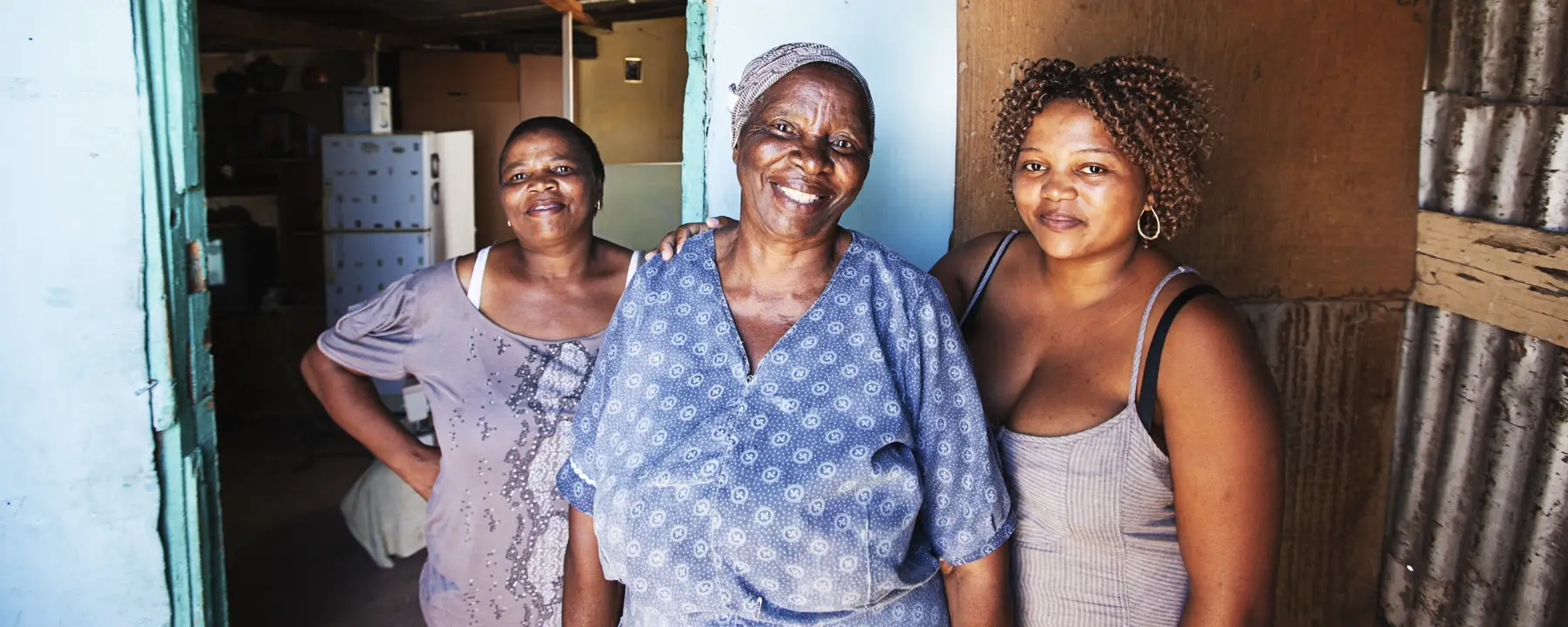An effective solution for reducing risky behaviors designed specifically for men, women, and couples
South Africa is believed to have more people living with HIV than any other country. In sub-Saharan Africa, the primary mode of transmission of HIV is heterosexual sex, and women are the most likely to be affected. Research has found that consuming alcohol or drugs before or during sexual activity can increase risky sexual behaviors. Because research has shown that the intersection of alcohol, drugs, and sexual risk affects men and women differently, our researchers are using gender-focused interventions to work toward an effective solution.
Designing and Delivering Gender-Focused Interventions for Women, Men, and Couples
With funding from the U.S. National Institutes of Health, we led two studies aimed to reduce HIV risk behavior among high-risk women and couples from socioeconomically disadvantaged communities in Cape Town, South Africa. The studies tested brief workshops—designed specifically for women, men, or couples—that provided participants with information about role expectations and skills to reduce substance use, violence, and sexual risk behaviors.
Reducing Drug Use and New HIV/AIDS Cases Among Men and Women
In an ongoing collaboration with the South African Medical Research Council, RTI researchers found that by reducing substance use and sexual risk behaviors, our interventions can reduce HIV incidence in key populations at risk for HIV acquisition. These findings are especially significant in South Africa, where substance use is highly prevalent and HIV incidence is high, particularly among young women of reproductive age.
Results showed that participants in the women-only intervention were significantly more likely to be drug-free 12 months after the intervention than women who did not participate, and were one-third less likely to contract HIV.
Similarly, results from the couples study showed that men who received the couples’ intervention were less likely to drink heavily and were more likely to report protected sex than men in the control group. Participants in the couples’ intervention were also significantly less likely to contract HIV.
Going forward, RTI is implementing the evidence-informed women’s intervention with support from the U.S. National Institute on Alcohol Abuse and Alcoholism and will assess its adoption, cost-effectiveness, and sustainability as an HIV prevention intervention for women.
- National Institutes of Health (NIH)
- South African Medical Research Council

